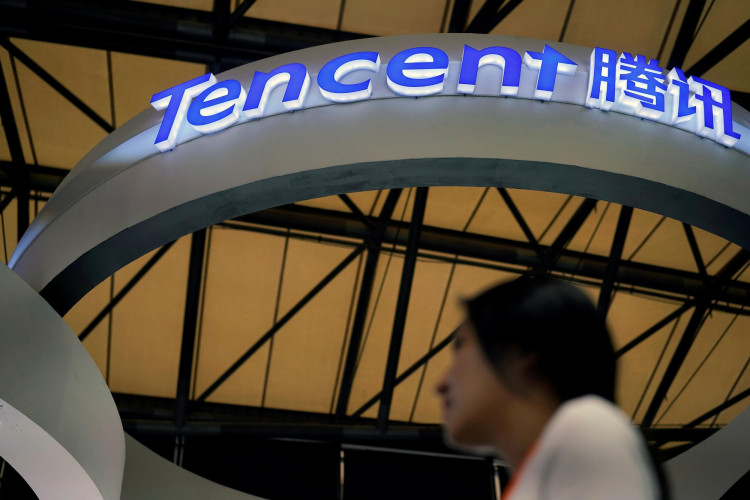Tencent Offers Online Mutual Fund Investing
Tengan Funds Sales, a financial subsidiary of the tech giant Tencent, launched its investment advisory service "Invest Together" on Tencent's WeChat platform on Wednesday, marking Tencent's expansion of its financial services offerings.
The two mutual fund products available on the platform are sold by big-name fund houses E Fund Management, China Southern Fund Management and HuaAn Funds. Hybrid fund portfolios account for 74.71% of the offerings, while stock funds represent 24.13%.
The Shenzhen Bureau of the China Securities Regulatory Commission (CSRC) had given Tengan Funds Sales a license to sell funds directly in January 2018. In October 2019, the CSRC launched a pilot scheme to test investment advisory business services in publicly offered mutual funds. Five firms, including E Fund Management and China Southern Asset Management, were given the first batch of licenses.
In late December, both Tengan Funds Sales and Ant Financial were given licenses for online mutual fund distribution.
In April, Ant Financial partnered with Vanguard, a U.S.-registered investment advisor, to start an investment advisory with the slogan "Help You Invest," which claims to have garnered 400,000 users in the past four months.
Analysts said the domestic equity market this year has generally performed well, so these investment advisory services have not yet demonstrated their value in navigating troubled financial waters.
Universal Studios Beijing Sets Opening Date
Universal Studios Beijing, Universal's sixth theme park worldwide, will start trial operations next spring, with its official opening set for May 2021, according to the management committee of Cultural Tourism Areas in Tongzhou district, Beijing Daily reported.
The 300-acre theme park was initially budgeted at $3.25 billion in 2014 but that figure doubled in 2018 to $6.5 billion. The investment scale outstrips that of Universal's domestic rival, Disney Shanghai, which cost over $5.5 billion to build.
The Universal Studios Beijing theme park will feature five themed lands: Transformers: Metrobase; Jurassic World Isla Nublar; Kung Fu Panda Land of Awesomeness; Minion Land; and The Wizarding World of Harry Potter.
A Universal spokesperson projected that Universal Studios Beijing would draw 12 to 15 million annual visitors.
Feed Price Surge Raises Pork Farming Costs
Feed prices for pigs have risen from RMB100 ($14.39) to RMB300 per ton so far this year, increasing the cost of each pig raised to slaughter and significantly impacting pig farmers, feedtrade.co reported.
Corn has played a critical role in the price increase. Its price rise to RMB2,300 per ton from RMB1,920 per ton, or an increase of 17.59%, marks a four-year high, according to the report. Corn production was hard hit this summer by severe flooding across southern China.
Meanwhile, the price of soybean meal has come down amid weaker demand as increased U.S. supplies hit China's market. As of last weekend, the soybean meal price ranged from RMB2,880 to RMB2,980 per ton in coastal regions, a drop of RMB70 to RMB100 per ton compared with the previous week. Analysts estimated the price would continue declining this week by RMB30 to RMB50 per ton.
Agricultural feed-related stocks have risen 60% this year, according to the Wind financial database.
Analysts said that despite the fluctuations in feed price, the pork market price is easing because frozen pork reserves have been released to the market. Despite those efforts to hold down prices, the national average pork price still hit RMB33.90 (US$4.83) per kilogram in the first half, a rise of 136.96% year-on-year, according to the Ministry of Agriculture and Rural Affairs.
Yantai Imported Seafood Tests COVID-19 Positive
Three Yantai companies discovered this week that imported seafood products delivered from a Dalian port had tested positive for the novel coronavirus. The Yantai COVID-19 control and prevention group said some of these products had been processed and exported, while most of the products remained in frozen storage and had not reached local markets, China Business Network reported.
The three companies' problematic seafood products were reportedly imported from the same country, but the authority has not revealed the country of origin.
A source involved in the Yantai frozen seafood import business said that it was hard to identify whether the coronavirus contamination came from Dalian port or from overseas. Some containers imported from overseas require repackaging processing during transfer at Dalian port, while others are transported directly to end destinations without opening any containers.
Earlier this month, a coronavius outbreak occurred at Dalian-based Kaiyang World Seafood Company, leading to the infection of 60 staff members. The city undertook large-scale measures to contain spread of the virus, testing nearly 1 million people daily. As of Monday, there were 92 total infections but no new cases had been reported.
Ex-Luckin Chairman's UCAR Business Faces Delisting Threat
An automobile e-commerce platform service provider, UCAR Inc., which was founded by disgraced former Luckin Coffee chairman Lu Zhengyao, has been accused of illegal disclosures of information by the China Securities Regulatory Commission. The CSRC revealed that more than RMB10.186 billion ($1.46 billion) in assets could not be accounted for in the company's 2019 H1 fiscal report, China Securities Daily reported.
UCAR still hasn't released its full 2019 annual fiscal report. According to CSRC regulations, if it fails to release the 2019 fiscal report by the end of August, the company will face delisting from the New Over The Counter Market.
In response to CSRC pressure, UCAR explained that its auditing work had been "severely delayed" by the COVID-19 pandemic.
UCAR announced on June 10 that it was replacing its original auditing company, Ernst & Young, with local firm Zhongxinghuai Certified Accountants LLP. The former served Luckin Coffee in preparing its previous IPO.
On June 11, UCAR further announced that Lu Zhengyao had stepped down from the chairman role of its subsidiary company, CAR Inc., of which UCAR holds a nearly 30% stake. Meanwhile Lu retained his role as chairman of UCAR.
UCAR reported a loss of RMB653 million in revenues in the first half of 2019, a drastic drop of 48.98% compared with the previous year.





